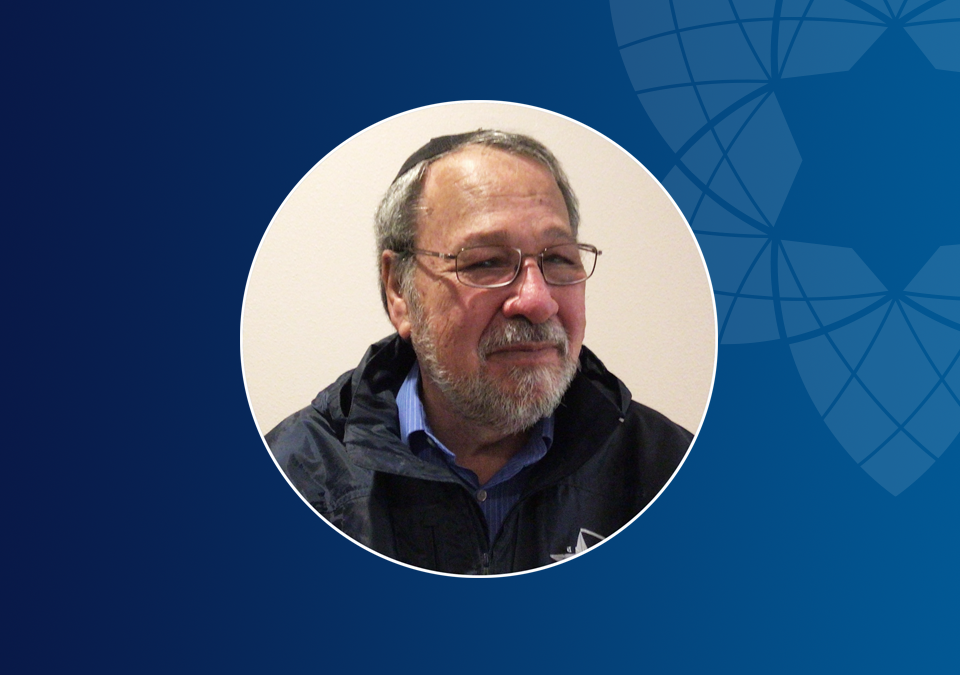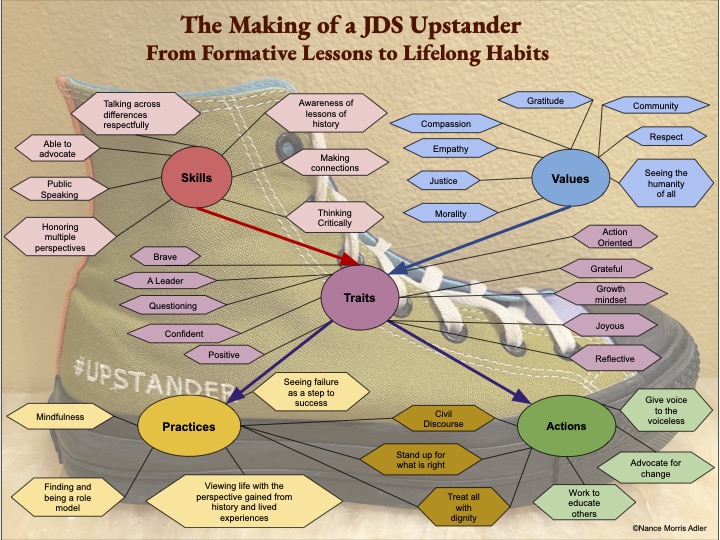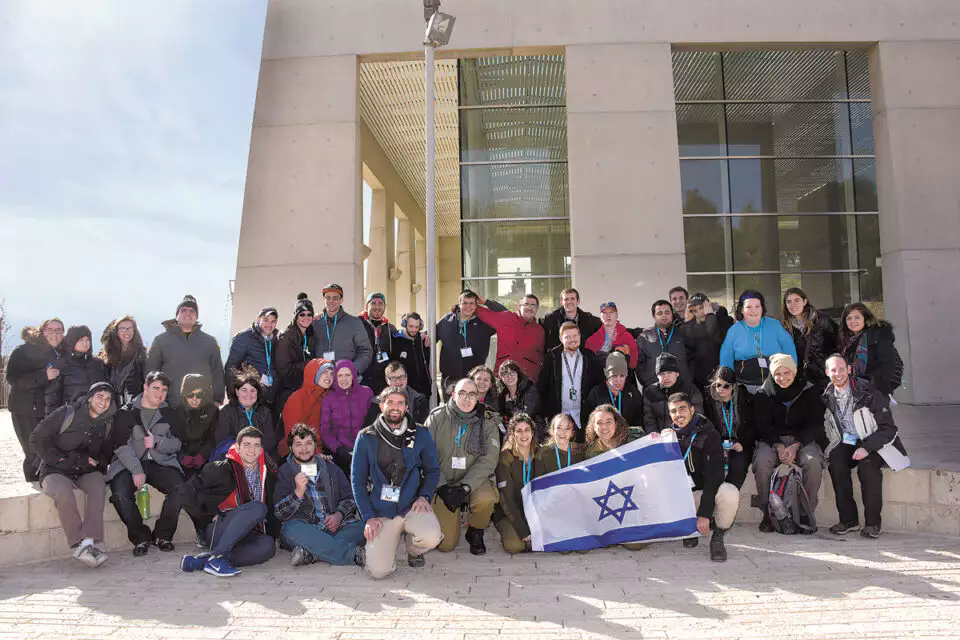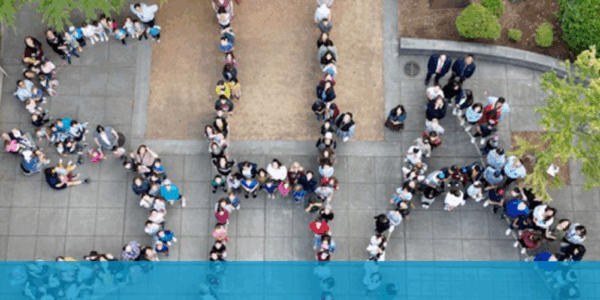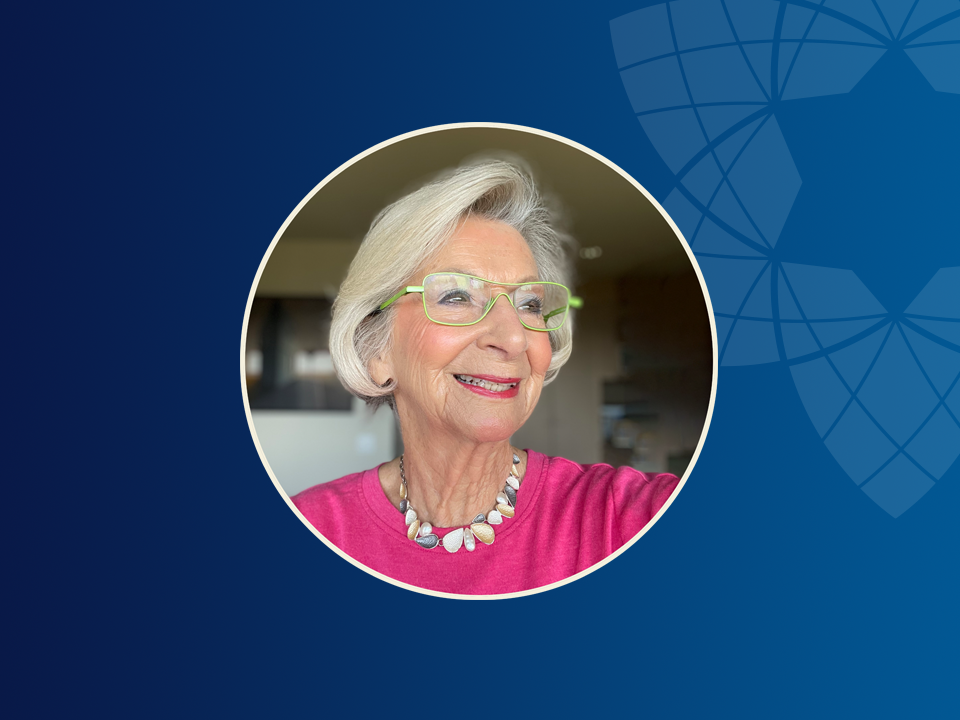
Samis Trustee Spotlight: Lucy Pruzan
May 27, 2021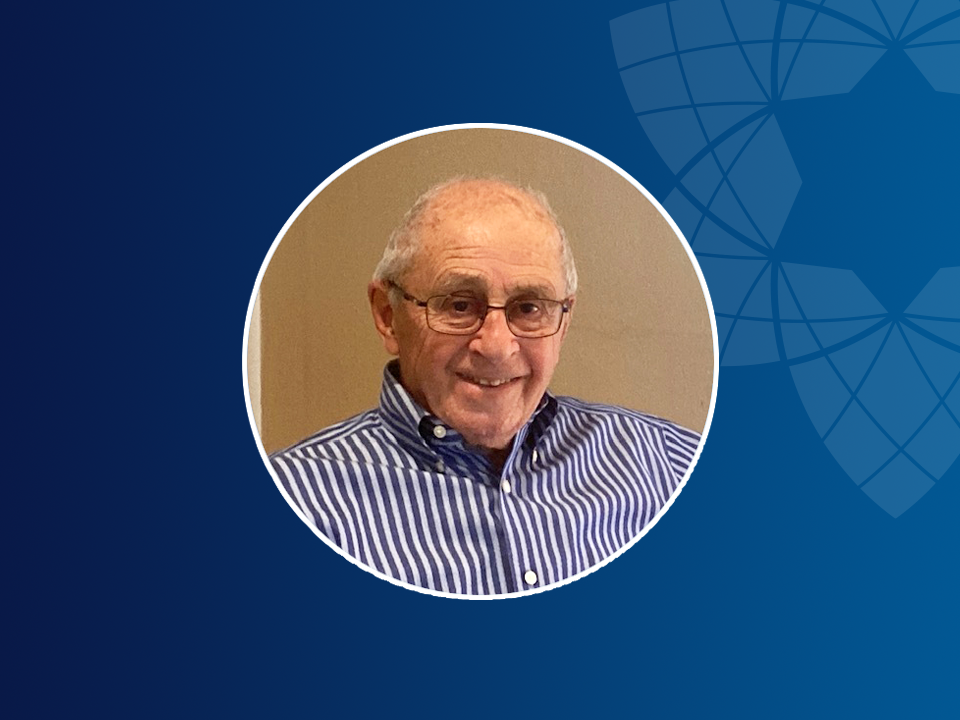
Samis Trustee Spotlight: Eddie Hasson
July 2, 2021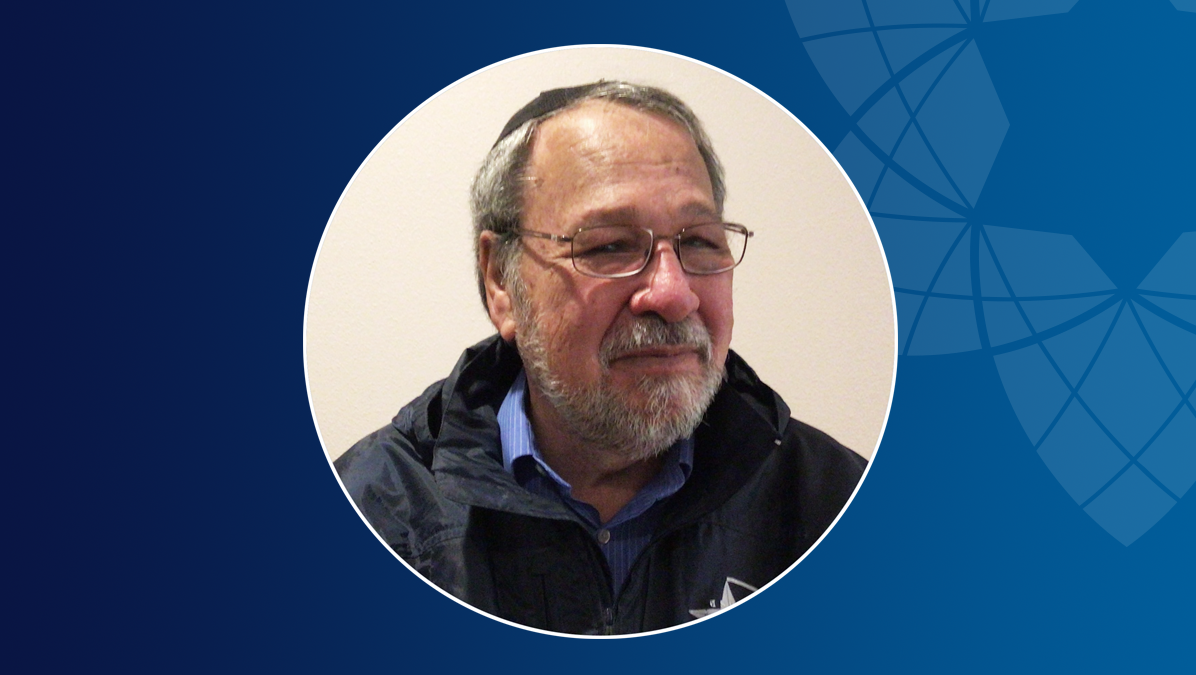
A conversation with native Seattleite, dedicated community member, and Samis trustee Eli Genauer
Years of Service: Lifetime Trustee
Committee (s): Israel Sub-Committee, Treasurer, Trusteeship, Endowment/Investment Committee, Executive Committee and Chair of the Finance/Audit Committee
Past Committee Service: Grants Committee
____________________________________
Did you have a personal connection to Sam Israel before joining the board?
I didn’t have a very close personal connection to Sam Israel. Unlike some of the other trustees, I wasn’t related to him. One of the trustees was his doctor, the other one was his lawyer. I didn’t have that kind of relationship with him, but I did interact with him back in the early 80’s when I was very involved with the Seattle Hebrew Academy. Supporting the Seattle Hebrew Academy was Sam’s kind of pet charity. At the time, Barry Ernstoff was the president of the school, and I was the Vice President, and we would get calls every once in a while from Sam asking about this and that, and we would respond, and so that’s really the relationship I had with him. Of course, since then I’ve heard a whole bunch of stories about him, all of which makes him much more animated and real for me.
I think the reason he asked me if I would be interested in joining the board was that it was suggested to him at the time and I’m going to say, this was about 1983 or 1984, that some of the trustees, the lifetime trustees he had picked out, were getting a little bit older and someone said to him, you really ought to have some younger people who are very involved with the community on the board. At the time I was 33 years old, so I definitely qualified as being young and Eli Almo was also around the same age as me or younger than I am, but we were both chosen and asked if we would serve at the same time. Just to show how time has passed, at that point I was a father of three children and now I’m a great grandfather of two great grandsons, so it’s definitely been a long time! A lot of changes have happened over the last thirty or so years, but one thing that’s remained the same is my interest in Sam Israel and the Samis Foundation and what it stands for.
What’s the greatest story you ever heard about Sam?
The greatest story I know about Sam is not really a story, it’s what he wrote himself. And that is, “for I am my brother’s keeper.” We have that up on the website and it’s interesting because you think that would be a verse in the Torah, but it’s not, there is no verse that says, I am my brother’s keeper, what there is, is there’s a question in the Bible when G-d asked Cain what happened to his brother, and he says, “am I my brother’s keeper?” Meaning, I have no responsibility for my fellow human being and there weren’t that many human beings at the time. It’s a question that rings across the ages. Sam Israel answered the question, saying yes, I am my brother’s keeper, I am responsible for what goes on, while I’m alive and even after I’m not here. I’m responsible for the world that I came into and the world that I left. Sometimes I get a little tired of the work and I’m not sure whether it’s all worth it. People think giving away so much money is a lot of fun and it’s very easy, but it’s not. All of the trustees take the job very, very seriously. And when I think of what Sam wrote it’s almost like I don’t have a choice, I have to do it, I have to continue what Sam began, which is, I am my brother’s keeper, so to me that’s really what it’s all about.
But I do have a story. I’ll give you two stories actually! There are stories about Sam that are very interesting and of course because I’m in the real estate business, I love the real estate stories. There’s one story, when someone wanted to rent space from him and he said, well I’ll rent you the space, but only if the lease can be on one page. The potential tenant was a big company and they sent Sam a 50-page lease. He wrote on top of the lease, “you’re not listening” and sent it back. Sure enough, they came back with a one-page lease. He definitely marched to the beat of his own drum, and I guess that sort of appeals to me, I like people like that. They’re much more interesting than most people!
Another time I was meeting with Barry in his office and Sam called and, of course the secretary always knew to put Sam right through even if we were in the middle of meeting. So, Barry put him on speakerphone, and he started to talk about the debt that the Seattle Hebrew Academy had put on its building. Which if I’m not mistaken, was something like $96,797 and 22 cents, something like that, and Sam said I don’t think that there should be any debt on the school, the school should be free and clear. There should be no debt on the building and I’m going to send you a check for that amount, but I want you to tell the board of directors that it’s only being given on the condition that they never put more debt that on the building.
Sam was generous, but logical. In other words, it wasn’t just that he had an open checkbook. It was a checkbook that he wanted to give, and he wanted to make a difference, but he had very specific ideas about how things should be, and he didn’t think that there should be debt on a school’s books. Sam was a proponent for holding less debt and I think that’s probably the way he would want it to be for the schools. I can’t control who the next group of trustees will be, but the ones who are alive today like myself, we try and keep in mind what Sam would do in a given situation, and I think that’s very important.
What is the most meaningful story, event, or experience you can recall related to your service on the Samis Board?
I think the school graduations are the most meaningful for me. We always try to get the trustees to attend the graduations of the various schools the Foundation supports, and for me this is always a highlight. We sit in meetings, and we look at pages of numbers and hear about fundraising and everything like that, but we never really get a chance to see the kids. My youngest child is 40 so it’s been 25 years since I’ve had a child in a day school in the Seattle area. Going to the graduations has gotten me back into the schools and into schools that I otherwise wouldn’t explore on my own.
I remember one particular graduation of the Jewish Day School of Metropolitan Seattle. They had a big class at the time, and hopefully they’ll get back to that point of what it was most probably about 10 years ago. They had 25 students graduating eighth grade who have been together since elementary school. We were at the graduation and what happened was that one student would talk about the student next to them and then the other one, and it was so unbelievable because you could see the bond that these kids had formed from being together for eight or nine years in the same class. And you don’t know what’s going to be with any of these children in the future, but you could tell that the formative years of their schooling were very positive, and they had a very positive outlook on it. And thinking that some way or another, that the Samis Foundation was involved with that, was a tremendous feeling and it made all the work that we do worthwhile. I look forward to the graduations every single year and that’s probably the part of being with the Foundation that has been the most meaningful to me.
Which area of the Foundation’s philanthropy most resonates with you and why?
What most resonates for me is obviously Jewish education. I believe our community needs to have very strong Jewish education and that’s what we support the most at Samis. Over 80% of our philanthropy goes towards supporting day school education and initiatives for sending kids to Israel and Jewish camp. It doesn’t get more Jewish, than Jewish camp! I think we have to give our kids a fighting chance to make an informed decision about their Judaism. The more Jewish experiences they have, the more education they have, the better able they are to make an informed decision about how they want to live as Jews. So that’s what the Samis Foundation supports.
In terms of our philanthropy in Israel, what’s interesting for me is the archeological projects we support. When I was a kid, I was very interested in archaeology. I was probably the only 10-year-old that had books on archaeology. I don’t know why, but I’ve just always been fascinated by it and when I got involved in the Foundation, I found out that was one of Sam’s areas of interest in Israel and I thought, wow that’s so cool! We make grants in Israel to support archaeological studies and publications and I think I am probably the only one that reads through all the project materials in detail. I’ll see something about a new dig in Israel and it just really intrigues me.
One of Sam’s articulated areas of funding in Israel is “support for widows and orphans, for they have lost their provider.” That’s almost biblical in nature, the way he wrote that, and so through his mandate we were introduced to the phenomenon of battered women in Israel, and we started funding various women shelters. We got exposed to a variety of issues these women face. What happens to women when they get out of the shelter? Where are they five years down the line? What happens to their children? These are issues I normally wouldn’t know anything about, but now I really follow it, because I’m on the Israel grants sub-committee. I believe it’s something that we need to be informed about and I’m proud of the philanthropic work we’ve done in this area.
How has serving on the Samis Board impacted your perspective on philanthropy and the Jewish community?
Well, it’s definitely made me more thoughtful. You can’t just give. You can’t give only based on data and you can’t give only based on your heart, it has to be something in between. It has to be based on some logic. We have to remember that at the end of the day, it’s not just a bunch of numbers and dollars, it’s the impact we are making on people lives. People have asked me many times, “Why would you give $100,000 to an organization that has a $20 million budget? You’re not going to make any impact.” And my response is that an organization with those resources knows what they’re doing. They have people in management, they can tell you what they’re going to do with the funding, and how it made an impact. On the other hand, you could have a very small organization asking for $100,000 and it’s not that they won’t utilize the funding, but sometimes they just don’t have the means to employ the right people.
It’s very important to give with your head and to give with your heart. It’s finding that right balance that is key to philanthropy. Personally, I never knew about the giving with the head part of it. I just never gave at the level where I could really make a difference in an institution, and I also didn’t have to balance it against five or ten other priorities. When you are at a foundation like Samis you always have to think, well if I give to this, I don’t have for that. It’s very important to consider the opportunity cost and keep things in perspective. We’re very lucky because in terms of numbers, investments and accounting we have some very talented staff and trustees who keep us going in the right direction to be able to continue our philanthropic work.
Where do you envision the Seattle Jewish community ten or twenty years from now?
You know what they say about prophecy? At the time of the beginning of the Second Temple, prophecy was given to two groups: fools and children. I’m definitely not a child, and I hope I’m not a fool, so I’m not really going to say what I see for the future of our community. But I will say that my connection to Seattle runs deep. People ask me how I got to Seattle, and I always tell them that I didn’t really have much choice. I was born here, so I care deeply about this community. I hope and pray that the Seattle Jewish community will be vibrant and that it will be a place where others will choose to raise their children as I did. I have one son and daughter in law and five grandchildren living in Seattle and I have one daughter who lives in New York and another who lives in Atlanta. I suppose it’s pretty typical this day and age to have children spread out all over the country, but even if none of my family lived here, I would still care about the Seattle Jewish community.
I’ve spent most of time trying to build community in Seattle. I’ve been involved on the SHA board and I’m also a board member of the Jewish Funders Network which is a national, and international organization, but my heart is really in Seattle. I would love for this community to remain vibrant and a place where people would want to be. To me though, a vibrant community definitely has to have thriving Jewish schools because without Jewish education you’re absolutely nowhere. The schools are extremely important. I believe we have the infrastructure and a really good product in Jewish day school education, we just need to increase awareness and keep in mind that for most families it is a significant investment. Education is expensive. They always say education is expensive, but worth it. Don’t try the alternative. That’s really the truth about Jewish education as well.
I believe we should be offering as much education as possible and when I say education, I’m also talking about Jewish camps and Israel experiences which are tremendous life changers for kids and access to youth groups. Education and the opportunity for education, the opportunity to grow, for young people and adults is incredibly important. In fact, from the perspective of family education, synagogues are also so important. All of the entities in our community have worked in silos for many years but looking towards the future if we could connect them and get people working together, I believe we could do so much more to strengthen our community for the future.

